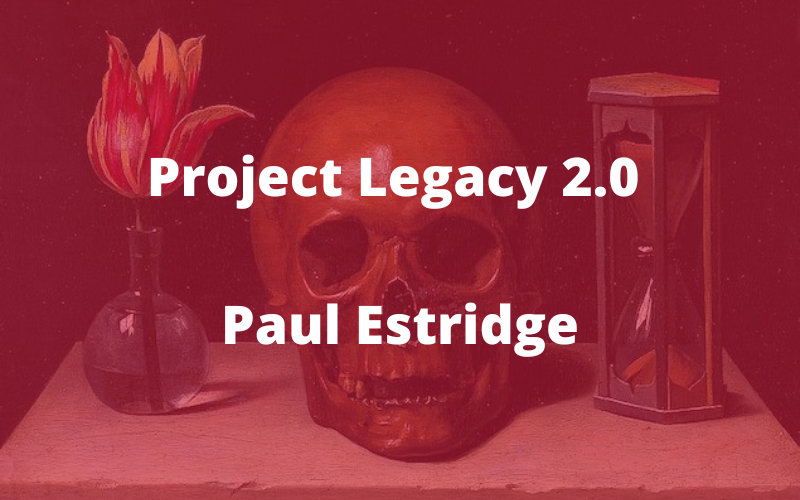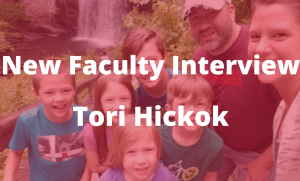By David Seibel, Head of School
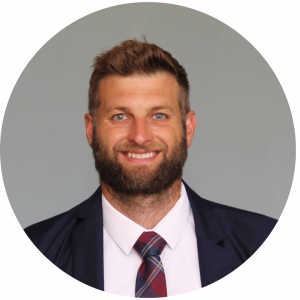
I recently sat down for Project Legacy with Central Indiana’s homebuilder, Paul Estridge, and various aspects of his perspective remind me of one of my heroes, Dr. Albert Mohler, the president of Southern Seminary in Louisville, KY. Mohler is an idiosyncratic man–he does his best work in the middle of the night, he records a daily podcast which is a thorough analysis of news and events from a Christian worldview, and he has a human skull on the corner of his desk where he does all of his book and article writing. Yes, you read that right, Dr. Albert Mohler has a human skull on his desk, and it’s called a memento mori, Latin for ‘reminder of death.’ Paul Estridge has the same phrase tattooed on his forearm. It serves as a reminder of death after he was diagnosed with an incurable lung disease. This phrase, memento mori, and the skull are vivid reminders that “the world is our ship and not our home” (Saint Therese of Lisieux).
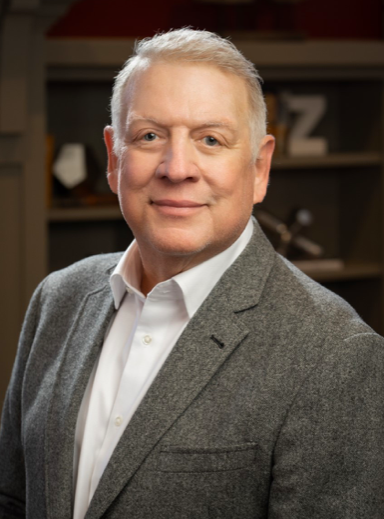
When I saw memento mori tattooed on Paul Estridge’s forearm during our Project Legacy 2.0 interview, I was excited to be sitting with someone who has their priorities straight. Estridge, a Westfield resident, owns Estridge Homes, a Carmel-based home builder that has built homes in the Indianapolis area for approximately 50 years. He also owns the Carmel restaurant Monterey Coastal Cuisine and TAB Indy North, a small business advisor and coaching service. Paul was awarded the Lifetime Achievement Award by the Chamber of Commerce and has built more than 30 neighborhoods and 8,000 homes in central Indiana. I sat down with him in his restaurant and then later in my office to understand his thoughts on life and leadership now that he has been diagnosed with a terminal lung disease. Below are the three primary lessons from my time with Paul Estridge.
1. We are all going to die, so begin with that end in mind.
I did not really ever consider my own end until I was in high school. Once a week at 6 a.m., our football coach hosted a leadership academy where we went through some of John Wooden and John Maxwell’s ideas on leadership. (This was before I drank coffee, so it is evidence of God’s grace that I even went to this meeting.) During that time, one of the activities that we did was write our own eulogy. Not being raised in a home where the Bible was consistently taught, I had never really deeply reflected on life, death, and eternity. This activity began a journey for me of thinking beyond the present life and to the things that last.
In the book Living Forward: A Proven Plan to Stop Drifting and Get the Life You Want, Michael Hyatt and Daniel Harkavy also have you write your own eulogy. Stephen Covey, infamous for The Seven Habits of Highly Effective People also saw how writing your own eulogy put your life into proper perspective. So it is not just Paul Estridge and Dr. Mohler who see the value in a memento mori.
Because of a diagnosis of idiopathic pulmonary fibrosis, a progressive and incurable lung disease that leads to difficulty breathing, Paul Estridge is more aware of his end than most. Mr. Estridge said of his experience,
I was placed in the ICU, and it was the most mentally challenging experience. At the time, it was closed to visitors due to the pandemic, which meant I couldn’t see my wife or children. And there were several times I worried I would not make it.
Paul’s perspective on remembering death reminded me of a verse in the book of Ecclesiastes that says, “It is better to go to the house of mourning than to go to the house of feasting, for this is the end of all mankind, and the living will lay it to heart.” I often find that I learn more from people who are weak physically due to some condition yet strong spiritually and mentally; this was most definitely the case with Paul Estridge.
When I asked Paul why he got the memento mori tattoo, he shared,
I got it right after my diagnosis, because I wanted to get comfortable with dying.
This might sound morbid–a mood characterized by or appealing to an abnormal and unhealthy interest in disturbing and unpleasant subjects, especially death and disease. However, I would argue that when a leader understands their own mortality, they are not morbid but actually quite healthy. Dr. Albert Mohler has some great thoughts on this idea in his book The Conviction to Lead in the chapter “The Leader and Death.”
- The memento mori motivates the individual to make the most out of time.
- Leadership is perishable.
- You probably don’t have a skull on your desk, but you should have one in your imagination.
- Cemeteries are filled with indispensable men (quoting De Gaulle).
For Paul Estridge and Albert Mohler, they can be comfortable with death, because they have hope that is beyond the grave. They know that Jesus conquered sin and took away death’s sting. Death is a transition into eternity with God, and what we do in this life echoes on into eternity. But praise be to God that our sin does not echo on into eternity, because Christ has muted the condemning voice of sin and Satan through His atoning death. This is the hope of Paul Estridge and Albert Mohler and can be your hope as well as you go through the trials of life and even consider your own mortality.
Our culture does everything possible to make death private and out of the public eye. I don’t think this is consistent with Christians throughout history have done. When we get comfortable with our end, we can live productively in the middle. Mohler writes the stark truth:
They are going to put you in a box and put the box in the ground and throw dirt on your face and then go back to the church and eat potato salad.
If that does not put our minutes upon earth into a long-term perspective, I am not really sure what will!
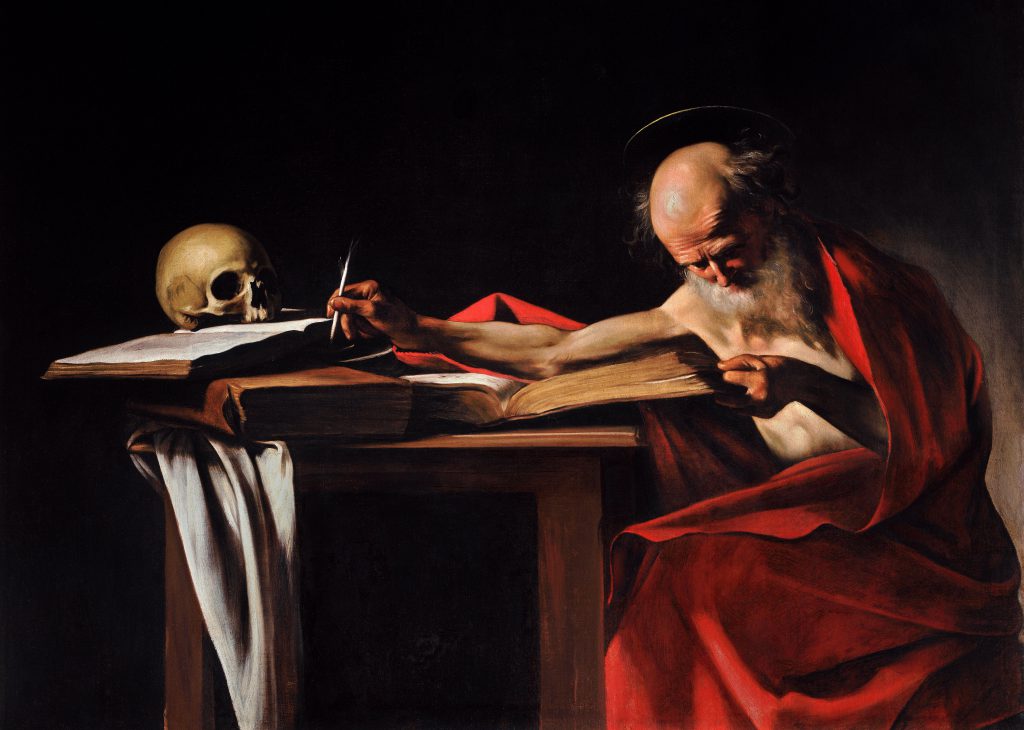
2. Legacy is not about you, so play the long game and remember the big picture.
After three years, I’ve done more than 30 Project Legacy interviews, and Paul gave me an answer that I had not yet heard. I always ask, “What sort of legacy do you want to leave behind?” Without skipping a beat, he responded,
Wanting to leave a legacy is a selfish thing. I don’t think of myself as the world is going to miss me except my wife and kids and a few friends. Ultimately, they will all get along. It is a selfish characteristic of people who are always concerned about their own legacy. There is only one person who we are still talking about today after 2000 years of history. He had no earthly power, no money, no status, and His influence still goes on. Jesus Christ–that’s a real legacy.
Paul, I think, is getting at the same idea that Socrates was when he asked, “Why so deadly earnest about gaining money and so little interested in the ones to whom you will relinquish it all?” Any long-term impact that we make is going to live in other people.
This post might feel like a cold shower–so far I have said that you will die, and now I want to say, you’re not that important. Surely, none of us are as important as we think we are. Even the most famous people in history quickly fade out of memory. Can you name all of United States presidents? Which team won the Super Bowl five years ago and who was the starting quarterback and the head coach? Who were the top five business in the world five years ago?
We all have a shelf-life and our legacy will only last if it’s tied to eternal things: God, His Word, and souls. Joshua Gibbs writes,
Almost nothing lasts. Buildings crumble. Clothes wear out. Cups break. A ceaseless flood of fashionable ideas comes and goes. What was thought progressive and enlightened just ten years ago is thought vulgar and primitive today. Things don’t last. Ideas don’t last. Almost nothing lasts. However, there is a very precious small number of things that do last. Some things don’t fall apart with time—they grow. A classical education is only concerned with bringing those rare things—the things which last—into our souls so that our souls can last, too.
To what extent are you involved in things that last? That will determine your legacy in the long run.
3. Invest in your Greatest Asset: The Next Generation
In this Video, Paul Estridge shares what he considers to be his greatest achievement. Paul shares
My greatest achievement has been finding the right way to raise our children to be independent and responsible Jesus-loving adults. Careers are inanimate / neutral, and the only thing that can have meaning is people.
I found it so interesting that Paul never talked about homes or his career at any point during our conversations. He instead talked about people.

The church I attend is in the Centennial neighborhood that he built, and the thing that he is most proud of is the massive hill that the kids sled down in the winter. My own run up that huge hill most Sundays after church! This aspect of Paul’s perspective reminds me of the quote,
If you want one year of prosperity, grow grain. If you want 10 years of prosperity, grow trees. If you want 100 years of prosperity, grow people.
This happens first and foremost through parenting, but we live in an age in the 2020s where schooling choice is more important than ever. You would not buy a brand-new Corvette and leave it out in the driveway during the winter. No, you would take extra special care of this luxury asset. How much more then you should parents move heaven and earth to invest in their greatest asset, their children! The evil Russian revolutionary Vladmir Lenin said, “Give me four years to teach the children and the seeds I have planted will never be uprooted.” But it is not just Russia but also Germany that has seen the importance of education throughout history. Adolf Hitler’s minister of munitions, Albert Speer, spent 27 years in prison and is famous for saying, “Germany had specialization and technical skills but lacked the adequate foundations.”
My big take away from homebuilder Paul Estridge is that his life has not so much been about building homes but about building people. His profession might have been building homes, but his purpose has been much larger. As you consider what you will invest your life in, consider investing in our civilization’s greatest asset, the next generation. You can make a gift to the Coram Deo Annual Fund here. Learn more about Paul Estridge and his podcast, Survive and Advance, here.
Check out some other Project Legacy 2.0 stories by clicking these links:
Taylor University President D. Michael Lindsay
Brian Schutt
Blair Dowden
Classical Reading List


